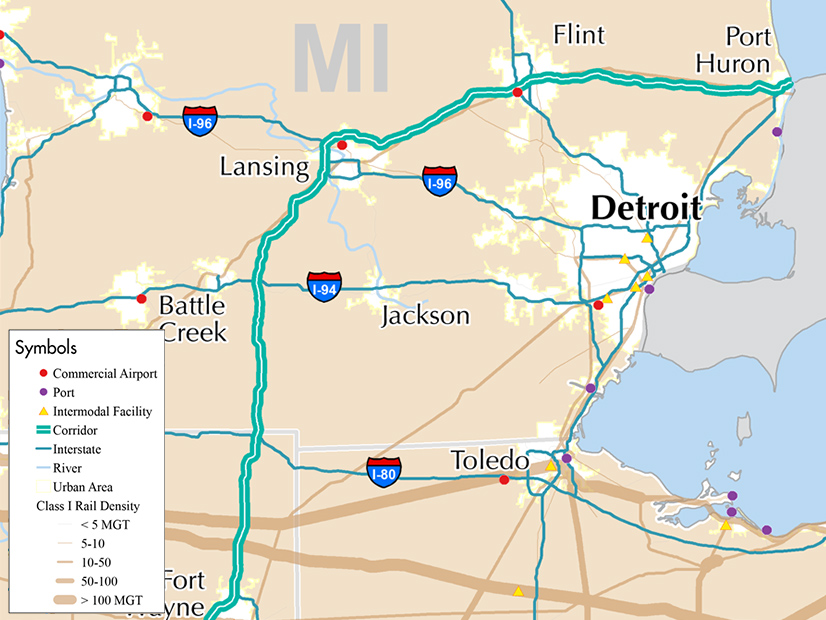
LANSING, Mich. — The governors of Michigan, Indiana, Illinois, Wisconsin and Minnesota last week agreed to collaborate to accelerate electric vehicle adoption in the upper Midwest, focusing initially on medium- and heavy-duty vehicles (MHDV).
In a Sept. 30 memorandum of understanding, the governors established the Regional Electric Vehicle Midwest Coalition to “future proof the region’s manufacturing, logistics, and transportation leadership and position the region to realize additional economic opportunity in clean energy manufacturing and deployment.”
The network’s initial focus will be installing a truck charging network on interstate and “regionally significant” commercial corridors to “leverage our existing role as a shipping and logistics hub,” the states said in a press release. “The MOU is meant to competitively position the Midwest for upcoming federal funding opportunities and create a welcoming environment for economic development and innovation around EVs, EV charging infrastructure, battery performance, and other technologies on the cutting edge of the transportation-energy sector convergence,” the agreement said.
The region is home to interstate highways such as I-94 and I-69, which play a key role in truck transport between the U.S., Canada and Mexico.
The five participating states will also “share best practices to inform the standardization of regulatory schemes” for EVs and “to develop a common customer experience across state lines.”
The agreement also calls for working with “historically disadvantaged” communities on electrification workforce development and assuring the availability of charging stations and economic development in all communities.
The states said their initial focus on MHDVs will improve air quality in disadvantaged communities located near freight and shipping facilities and highways.
The Midwest initiative is not the first multistate collaboration on EVs. In 2017, the governors of Arizona, Colorado, Idaho, Montana, Nevada, New Mexico, Utah and Wyoming created REV West, which focused on eliminating range anxiety for EV owners on major highways in those states. As of December 2020, the states reported the addition of more than 100 DC fast-charging stations by the private and public sectors since the MOU’s launch, with at least 75 additional stations in the planning phase.
Jane McCurry, executive director of Clean Fuels Michigan, said the agreement could assure commercial truckers of “cross-boundary cooperation on charging infrastructure. Heavy duty vehicles, really any fleet vehicles, need to know they can charge with confidence, and the rules won’t change from location to location.”
The states hope their collaboration will increase the region’s share of electric vehicle production.
Michigan and Indiana are top automotive production states, and electric truck maker Rivian, whose manufacturing facility is in central Illinois, plans to begin shipping its electric pickups in January 2022. General Motors (NYSE:GM) and Ford (NYSE:F) have committed to electrifying their product line.
“We shouldn’t have to choose between building a cleaner, more equitable state and economic development — and thankfully, vehicle electrification is an area where we can do both,” Wisconsin Gov. Tony Evers (D) said in the release.
The five states agreed to create a task force of senior state leaders to oversee the activities and work to remove barriers to EV charging infrastructure.
The MOU is not legally binding, and any of the states can leave the agreement. The MOU members can add more states to the agreement by a unanimous vote.


